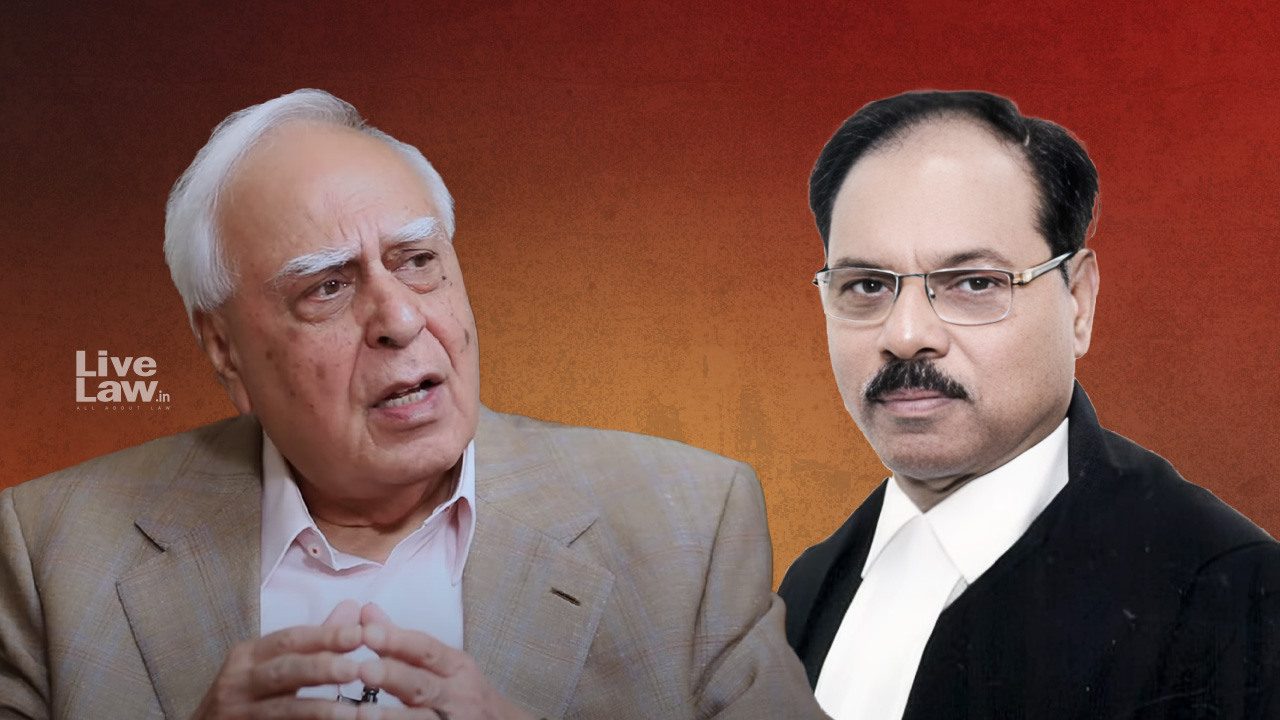 |
|
The Indian legal landscape is currently embroiled in a significant controversy surrounding the call for the impeachment of Justice Shekhar Kumar Yadav, a judge of the Allahabad High Court. This demand stems from a controversial speech delivered by Justice Yadav at an event organized by the Vishwa Hindu Parishad (VHP), a Hindu nationalist organization. Senior Advocate and Rajya Sabha MP Kapil Sibal, a prominent figure in Indian legal circles and former President of the Supreme Court Bar Association, has spearheaded the call for impeachment, arguing that Justice Yadav's speech violated the principles of judicial impartiality and neutrality. The speech, the content of which has not been explicitly detailed in the provided text but is described as containing 'communal overtones and unpardonable slurs against the Muslim community,' has sparked widespread outrage and calls for accountability within the judiciary. Sibal's appeal for the impeachment of Justice Yadav extends beyond a simple call for individual accountability; it raises broader questions about the appointment process for judges, the conduct expected of those in judicial positions, and the overall independence of the judiciary in India. He believes that the speech demonstrates a significant breach of the expected neutrality required of a judge, eroding public trust in the judicial system.
Sibal's call for impeachment is not merely a personal opinion; it represents a significant challenge to the established norms and practices within the Indian judicial system. His public statement, calling upon members of the ruling party to join him in this effort, highlights the deeply political dimensions of this controversy. The involvement of the Supreme Court, which has requested a report from the Allahabad High Court regarding Justice Yadav's speech, further underscores the gravity of the situation. This action by the Supreme Court represents a potential internal mechanism for addressing the allegations of misconduct, albeit without explicitly endorsing Sibal's call for impeachment. The campaign for Judicial Accountability and Reforms (CJAR), an independent organization advocating for greater transparency and accountability within the Indian judicial system, has further fueled the controversy by writing to the Chief Justice of India, seeking an in-house enquiry into Justice Yadav's conduct and advocating for his removal from judicial duties. The CJAR's involvement demonstrates the broader concern within civil society about the potential implications of Justice Yadav's speech and the need for the judiciary to uphold its reputation for impartiality.
The controversy surrounding Justice Yadav's speech also throws into sharp relief the ongoing debate about the role of the judiciary in a diverse and often politically charged society like India. The reference to the recent resignation of Justice Abhijit Gangopadhyay from the Calcutta High Court to contest Lok Sabha elections as a BJP candidate adds another layer of complexity to the issue. This event, in Sibal's view, points towards a potential erosion of the judiciary's independence and underscores the need for stricter ethical standards and greater scrutiny of judges' conduct outside the courtroom. Sibal's assertion that the Supreme Court possesses the power to suspend Justice Yadav highlights the mechanisms available within the judicial system itself to address such controversies, potentially bypassing the more politically fraught process of impeachment. The question of whether the government will support Sibal's efforts and what actions the Supreme Court will take remains central to the ongoing debate. The outcome of this controversy will undoubtedly have significant implications for the future of judicial independence and accountability in India, shaping public perception of the judiciary's role in upholding the rule of law.
The incident has broader implications beyond the specific case of Justice Yadav. It raises concerns about the influence of political ideologies and partisan affiliations on the judiciary's integrity. If a judge's speech can be interpreted as favoring a particular political or religious group, it raises concerns about whether he or she can impartially preside over cases involving members of other groups. This underscores the critical importance of maintaining a strictly impartial judiciary free from overt political or religious leanings. The independence of the judiciary is a cornerstone of a just and equitable society, and this incident serves as a stark reminder of the fragility of this principle and the constant vigilance required to safeguard it. The ongoing debate also highlights the complexities of balancing the judiciary's independence with the need for accountability. While the judiciary must be free from undue political influence, it must also be held accountable for any actions that undermine public trust and confidence. This delicate balance is a constant challenge for any democratic society and the resolution of this specific case will set an important precedent for future instances of alleged judicial misconduct.
Source: Kapil Sibal Seeks Impeachment Of Justice Shekhar Yadav Over VHP Speech
